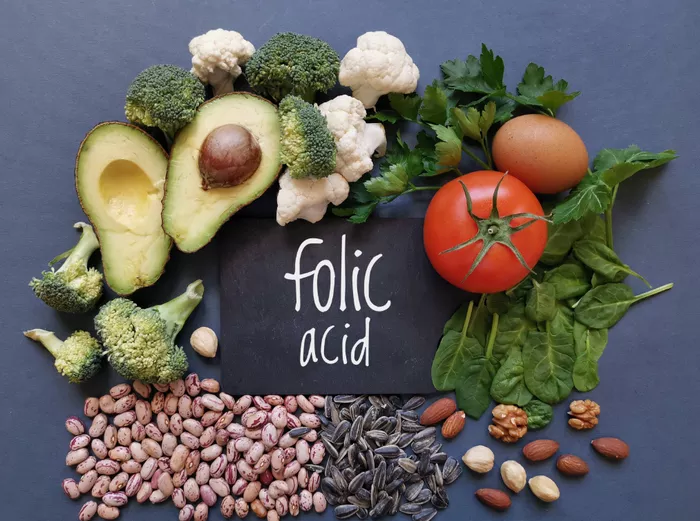Hair loss can be a distressing condition affecting both men and women, often prompting individuals to explore various supplements and vitamins that may help promote hair growth. Among these supplements, folic acid, also known as vitamin B9, has gained attention for its potential role in supporting hair health. This article explores the relationship between folic acid and hair loss, delving into the recommended dosage, benefits, potential side effects, and considerations for incorporating folic acid into your hair care regimen.
Understanding Folic Acid and Its Role in Hair Health
Folic acid is a water-soluble vitamin that plays a crucial role in cell division and the formation of DNA. It is essential for overall health, including the growth and maintenance of hair follicles. While research specifically linking folic acid deficiency to hair loss is limited, its involvement in cell growth and repair suggests it may influence hair growth indirectly.
The Connection Between Folic Acid Deficiency and Hair Loss
Inadequate levels of folic acid can lead to a range of health issues, including anemia and problems with cell division. While severe folic acid deficiency is relatively rare in developed countries due to dietary fortification and supplementation, suboptimal levels may still impact hair health over time.
Recommended Daily Intake of Folic Acid
The recommended daily intake of folic acid varies by age, sex, and life stage. For adults, including pregnant women, the recommended dietary allowance (RDA) is typically 400 micrograms (mcg) per day. Pregnant women and those planning pregnancy often require higher doses to prevent neural tube defects in newborns, usually around 600-800 mcg daily.
Folic Acid and Hair Growth: What Does the Research Say?
Research specifically focusing on folic acid’s direct impact on hair growth is limited. However, studies have explored its role in overall cell proliferation and its potential benefits for skin health. Since hair follicles are highly metabolically active and require robust cell division for growth, ensuring adequate folic acid intake may indirectly support hair health.
How Folic Acid Supports Overall Hair Health
Folic acid contributes to overall hair health by supporting cell division and tissue growth. Hair follicles, like other rapidly dividing cells in the body, rely on adequate folic acid for their normal function and regeneration. While it may not directly stimulate hair growth, ensuring sufficient folic acid levels is essential for maintaining healthy hair follicles.
See Also: Can Fish Oil Supplements Cause Hair Loss?
Potential Benefits of Folic Acid for Hair Loss
While more research is needed to establish a direct link, some potential benefits of folic acid for hair loss include:
Supporting Cell Division: Folic acid is crucial for cell division and tissue growth, processes vital for maintaining healthy hair follicles.
Improving Nutrient Delivery: Adequate folic acid levels may enhance nutrient delivery to the hair follicles, supporting their overall health and function.
Promoting Overall Scalp Health: Folic acid’s role in supporting skin health may extend to the scalp, potentially creating a more favorable environment for hair growth.
Factors Influencing Folic Acid Absorption and Utilization
Several factors can influence how well your body absorbs and utilizes folic acid, including:
Dietary Intake: A balanced diet rich in fruits, vegetables, and fortified grains can provide adequate folic acid.
Genetic Factors: Certain genetic variations can affect how efficiently your body processes and utilizes folic acid.
Underlying Health Conditions: Medical conditions such as malabsorption syndromes or chronic illnesses may impair folic acid absorption.
Medications: Certain medications, such as anticonvulsants and methotrexate, can interfere with folic acid metabolism and increase the body’s demand for this vitamin.
How Much Folic Acid Should You Take for Hair Loss?
Determining the right amount of folic acid for addressing hair loss can be challenging, as individual needs vary based on factors such as age, diet, and overall health. Here are some general guidelines to consider:
1. Recommended Daily Allowance (RDA):
For adults, including pregnant women, the RDA for folic acid is 400 mcg per day. This amount is sufficient to prevent deficiency and support overall health.
Pregnant women and those planning pregnancy should aim for 600-800 mcg daily to reduce the risk of neural tube defects in newborns.
2. Supplementation for Hair Health:
If you suspect folic acid deficiency or inadequate intake through diet alone, consider supplementing with 400-800 mcg of folic acid daily.
Consult with a healthcare provider before starting any supplements, especially if you are pregnant, nursing, or have underlying health conditions.
3. Combination Therapies:
Folic acid is often included in multivitamin supplements marketed for hair, skin, and nail health. These formulations may combine folic acid with other vitamins and minerals believed to support hair growth.
Look for supplements that provide nutrients at or near the RDA to avoid excessive intake, which can have adverse effects.
Potential Side Effects and Considerations
While folic acid is generally considered safe when taken at recommended doses, excessive intake can lead to side effects such as:
Digestive Issues: High doses of folic acid may cause nausea, bloating, and cramps.
Masking Vitamin B12 Deficiency: Excessive folic acid can mask symptoms of vitamin B12 deficiency, which can lead to nerve damage if left untreated.
Interaction with Medications: Folic acid supplements can interact with certain medications, such as antiepileptic drugs and methotrexate, affecting their efficacy.
Conclusion
In conclusion, while folic acid plays a vital role in overall health and cell growth, its specific impact on hair loss remains an area of ongoing research. Ensuring adequate intake of folic acid through diet and possibly supplementation can support overall hair health by promoting optimal cell division and tissue growth. However, individual responses to folic acid supplementation may vary, and consulting with a healthcare provider is essential to determine the right approach for addressing hair loss concerns.
By understanding the role of folic acid in hair health and considering its potential benefits alongside other lifestyle modifications, individuals can make informed decisions about incorporating folic acid into their daily regimen to support healthy hair growth.


